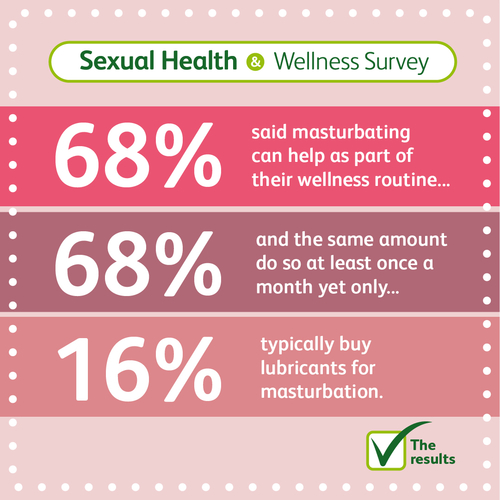Sexual Health and Wellbeing Survey 2020 – the results!
Back in September, as part of Sexual Health Week 2020, LloydsPharmacy asked you to take part in their Sexual Health and Wellbeing survey. We wanted to find out how sex affects your relationship and wellbeing, and if COVID-19 has changed your attitude to dating.
Over 1200 of you responded and today we’re going to explore the results and delve a little deeper into the world of sexual health, dating and how these things impact our wellbeing.
Who took part?
Before we take a look at the results, it’s worth us getting an idea of who responded to the survey. This might help us understand some of the results a little better.
Of the 1224 people who responded to the survey 69% identified as female, 30% as male and just under 1% as other or preferred to not say. It was a fairly even spread of age groups who took the survey, with roughly 20% in each of the following groups – 25-34, 34-44, 45-54, 55-64. 9% of participants were 18-24 and 11% over 65.
The overwhelming majority of respondents (88%) identified as heterosexual, with 2% identifying as gay and 7% as bisexual. 43% of those surveyed were married, 28% were in a relationship, 6% engaged and 21% were single.
How often we’re having sex
We asked you how often you’re having sex with your current partner or in your most recent relationship. Over half of those surveyed answered weekly, with the next biggest proportion being monthly at 16% and 12% daily.
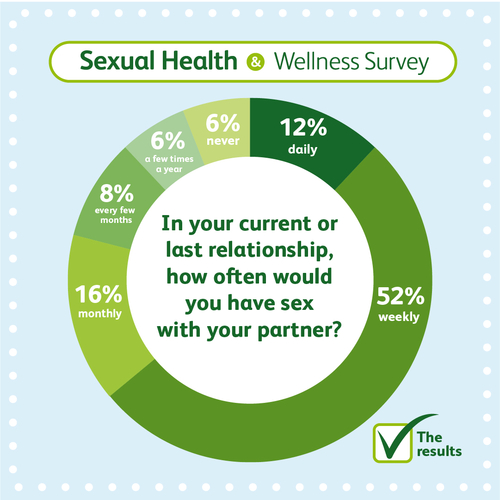
It’s easy to get hung up on how much sex we’re having, but these results show us that everyone’s relationships are different, and while lots of people are having sex weekly, 36% are having it much less frequently.
Talking about sex
From the results of the survey, it seems lots of people are comfortable talking to their partners about sex. With 24% talking about it daily, 40% weekly and 16% monthly. It’s great to talk openly about sex with your partner, as it allows you to be honest with yourself or your partner about what you want.
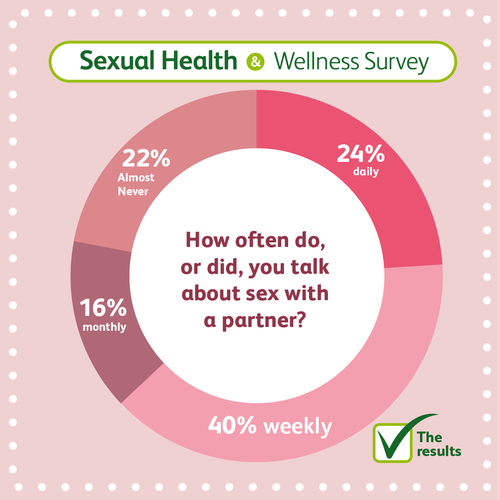
However, we also asked the participants how often they were asked for feedback on their performance in bed. 47% said sometimes and 41% said never, so despite happily talking about sex with their partners, it appears lots of people don’t give open feedback about what we like, don’t like and how we could all enjoy sex even more. This could be that you want to experiment with something new, whether that’s a new technique, lubricant or trying sex toys.
Feeling anxious about sex
It’s natural to sometimes feel anxious about sex. It can be nerve wracking to have sex with a new person and be intimate with them for the first time.
Up to 79% of those surveyed said they have felt anxious at some point about their performance in bed. 28% people said they always feel anxious about having sex with a new partner.
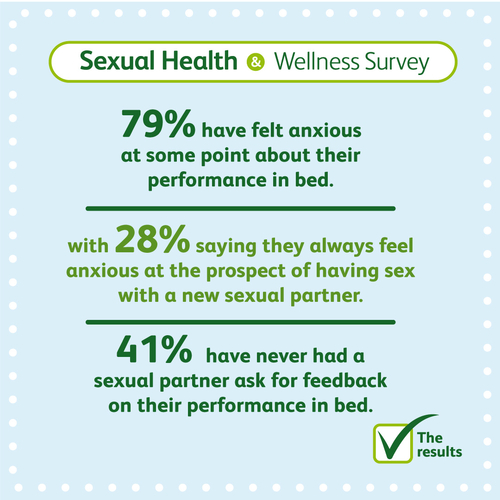
Feeling anxious about sex can sometimes lead to sexual performance anxiety for men and women. Anxiety about sex in men can lead to erectile dysfunction (ED) and premature ejaculation (PE). In women it can lead to tension and a reduction in lubrication, which can make it difficult and sometimes painful to have sex. Talking about sex, being open and honest with your partners can help to reduce this anxiety. Find out more about performance anxiety and treatment here.
Sexual health checks
We all know we should get tested regularly for sexually transmitted infections (STIs). But given the fact the large majority of our participants are married or in relationships, we might have expected a high number of them to not have had a test recently. However just over 50% of those surveyed said they have never had a sexual health check!
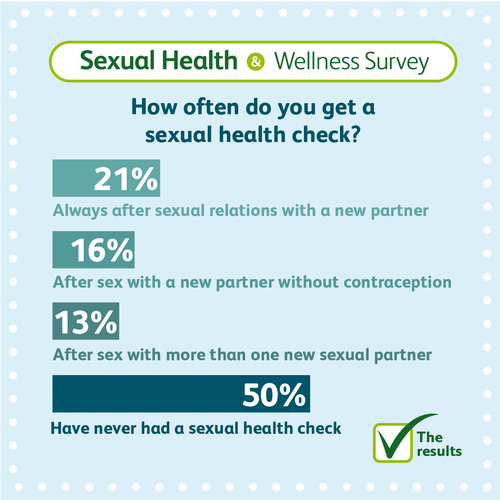
Here at Online Doctor we advise people get tested every 6 months, or after changing sexual partner(s). We also want to encourage you to talk to new sexual partners about their sexual history and whether they’ve recently had an STI test.
Our STI testing service is discreet and easy to use, you’ll have your results within an estimated 3 days of samples arriving back in our partner lab.
Masturbation
We also asked our participants about masturbation and if this formed part of their wellness routine. We hear a lot about ‘self-care’ in the forms of exercise, pampering and making sure we get enough time. But masturbation can also be a legitimate part of this routine, as it can be an important part of looking after yourself physically and mentally. Our participants agreed with this, as 68% of them agreed masturbation can help as part of their wellness routine, and the same amount of people do so at least once a month.
Sex, dating and COVID-19
We couldn’t ask you to take part in a survey during a pandemic, without taking a look at how your behaviours have changed in light of COVID-19.
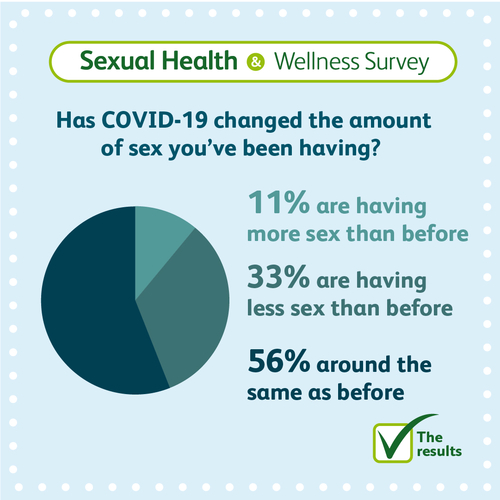
It seems that the majority of people are having the same amount of sex as before the pandemic. 11% are having more sex – maybe these are couples locked down together. A third of people are having less sex than before. This is not surprising as lockdown made it difficult for single people to get out and meet new people. Plus many couples were forced to lockdown separately.
For single people, dating during COVID-19 is likely to have been quite tough. Over half of people who answered our dating questions said that lockdown has affected their dating behaviour. And a third said the thought of catching COVID-19 made them anxious about dating.
If you need any sexual health advice or support, you can visit our STI clinic, speak to your GP or visit your local sexual health clinic.
This study was conducted by The River Group on behalf of LloydsPharmacy, N=1200, September 2020.
